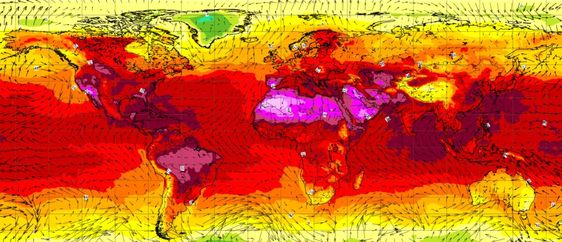
In her first term, New Zealand PM Jacinda Ardern passed sweeping gun reforms after a mass shooting, oversaw an incredibly successful virus response, AND had a baby,
she also canceled a planned tax cut and put the money toward healthcare and education, it’s MADNESS— all while Trump sits in a golf resort and mewls about the media
“A huge reason that our politics is not so extremely polarised and so far out there is because we no longer have any Murdoch-owned press” / Why New Zealand rejected populist ideas other nations have embracedHannah Peters/Getty Images

Finlay Macdonald, The Conversation; Liz Minchin, The Conversation; Michael Lund, The Conversation; Veronika Meduna, The Conversation, and Wes Mountain, The Conversation
Labour is celebrating a landslide victory tonight after winning 49% of the vote. The result means Labour could govern alone — the first time this has happened since New Zealand introduced a mixed-member proportional (MMP) electoral system in 1993.
In her victory speech, Prime Minister Jacinda Ardern said the result gave Labour “the mandate to accelerate our [COVID-19] response and our recovery. And tomorrow we start.”
.@nzlabour leader @jacindaardern has stormed back into power with an historic vote, set to govern alone with more than 90% of the vote counted. “The message for me is, now let’s crack on with it,” she told @MutchJessica after her victory speech. #YourVote2020 pic.twitter.com/ueBGFgMPby
— 1 NEWS (@1NewsNZ) October 17, 2020
Earlier, National Party leader Judith Collins, whose party only won 26.8% of the vote, promised to be a “robust opposition” and “hold the government to account for failed promises”.
You can read the analysis of the results by our five political experts here.
In the new parliament, Labour will have 64 seats — three more than the 61 needed to form a government. National has 35, the Green Party ten, ACT ten, and the Māori Party is expected to return to parliament with one seat.
The numbers are a reversal of the 2017 results when Labour polled 36.9%, National had 44.4% of the vote and New Zealand First leader Winston Peters became the kingmaker.
New Zealanders had to wait almost a month before Peters announced he would form a coalition with the Labour Party, becoming deputy prime minister. The Green Party joined the coalition in a confidence and supply arrangement.
In this election, NZ First was ousted from parliament, after the party failed to reach the 5% threshold and neither of its candidates managed to win an electorate seat.
Five parties gained seats in parliament. The Māori Party is expected to win one of seven Māori electorate seats and return to parliament even though it only achieved 1% of the party vote. None of the other minor parties won electorate seats or reached the 5% party vote threshold.
Compared to previous elections, record numbers of New Zealanders voted early in 2020. A day before the election, almost 2 million people had already cast their votes.
Read more:
NZ election 2020: how might record advance voting numbers influence the final outcome?
Voters also voted on two referendums: whether the End of Life Choice Act 2019 should come into force and whether the recreational use of cannabis should become legal.
Referendum votes will be counted after election day and preliminary results will be released on October 30. We’ll cover the outcomes then.
2017 election results
In 2017, the National Party won 44.4% of the votes and on election night, then prime minister Bill English celebrated victory.
But NZ First won 7.5% and held the balance of power. It was the third time for NZ First leader Winston Peters to become the veto player in the government-formation process.
After almost four weeks of negotiations, he opted to go into a coalition with Labour, with the Green Party in a confidence and supply role. For the first time under New Zealand’s MMP electoral system, the new government was not led by the party that had won the largest number of seats.
Jacinda Ardern became prime minister in an extraordinary period in New Zealand’s political history. Just three months earlier, Ardern had been the deputy leader of a Labour Party polling in minor party territory.

This article is republished from The Conversation under a Creative Commons license. Read the original article.
There’s big expectations for this second instalment…
And don’t forget the climate and sustainability.
My @DomPost @NZStuff #cartoon today. #nzpol #NZElection2020 pic.twitter.com/zwjGllzGSD— Sharon Murdoch (@domesticanimal) October 18, 2020




5 Comments
Pingback: ‘The shoes needing filling are on the large side of big’ – Jacinda Ardern’s legacy and Labour’s new challenge - Bergensia
Pingback: เครื่องกรองน้ำ coway
Pingback: อุปกรณ์โรงแรม
Pingback: ไฮเบย์
Pingback: caluanie muelear oxidize parteurize